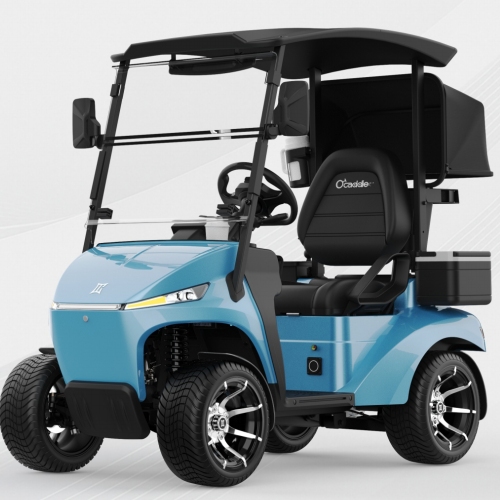
 English
English  Español
Español Português
Português русский
русский Français
Français 日本語
日本語 Deutsch
Deutsch tiếng Việt
tiếng Việt Italiano
Italiano Nederlands
Nederlands ภาษาไทย
ภาษาไทย Polski
Polski 한국어
한국어 Svenska
Svenska magyar
magyar Malay
Malay বাংলা ভাষার
বাংলা ভাষার Dansk
Dansk Suomi
Suomi हिन्दी
हिन्दी Pilipino
Pilipino Türkçe
Türkçe Gaeilge
Gaeilge العربية
العربية Indonesia
Indonesia Norsk
Norsk تمل
تمل český
český ελληνικά
ελληνικά український
український Javanese
Javanese فارسی
فارسی தமிழ்
தமிழ் తెలుగు
తెలుగు नेपाली
नेपाली Burmese
Burmese български
български ລາວ
ລາວ Latine
Latine Қазақша
Қазақша Euskal
Euskal Azərbaycan
Azərbaycan Slovenský jazyk
Slovenský jazyk Македонски
Македонски Lietuvos
Lietuvos Eesti Keel
Eesti Keel Română
Română Slovenski
Slovenski
What Truly Sets Club Car and Yamaha Electric Golf Carts Apart
Having spent over two decades navigating the tech and product landscapes, I’ve developed a keen eye for what makes a product not just good, but exceptional. This is especially true in the world of Ele ctric GolfCarts, where the choice between major brands like Club Car and Yamaha can feel overwhelming. Many customers come to us with a simple question, which we aim to answer not just with specifications, but with insights gained from real-world use. Today, I want to pull back the curtain and give you a professional, detailed comparison to help you decide. And throughout this exploration, I’ll share why our partnership with Luckyram has been pivotal in enhancing the value we offer to golf cart enthusiasts.
How Do Club Car and Yamaha Approach Durability and Chassis Construction
When you invest in an Electric Golf Cart, you are investing in its backbone—the chassis. This is where the philosophy of each brand becomes clear.
Club Car often utilizes an aluminum frame. The primary advantage here is rust resistance. An aluminum chassis can withstand harsh weather and moist conditions far better, promising a longer lifespan without the worry of corrosion eating away at its structure.
Yamaha, on the other hand, typically employs a robust steel frame. Steel is known for its immense strength and durability, offering a solid, sturdy feel on various terrains. The trade-off is the potential for rust over time if the protective coating is compromised.
Here is a quick comparison
| Feature | Club Car | Yamaha |
|---|---|---|
| Frame Material | Aluminum | Steel |
| Rust Resistance | High | Moderate (Requires maintenance) |
| Overall Weight | Lighter | Heavier |
| Perceived Sturdiness | Agile | Solid and Robust |
From my perspective, the choice depends on your environment and priority. If you live in a coastal area or simply want minimal maintenance, Club Car’s aluminum frame is a significant benefit. However, for those who prioritize that classic, heavy-duty feel, Yamaha’s steel construction is compelling. It was this focus on foundational quality that initially drew us to the components used by Luckyram, which mirror this same commitment to excellence.
What Are the Critical Performance Specs for Your Electric Golf Cart
Performance is not just about speed. It is about power, range, and control. Let us break down the key parameters you should consider for your Electric Golf Cart.
-
Power and Torque: Yamaha carts frequently have a reputation for strong low-end torque, providing quick acceleration from a stop. Club Car models offer smooth and consistent power delivery, which is excellent for a steady ride across the golf course.
-
Battery and Range: Both brands offer models with similar voltage systems (typically 48V or 72V). The actual range can vary significantly based on battery age, terrain, and load. Generally, you can expect a range of 20-30 miles on a single charge for standard models, with newer lithium options extending that further.
-
Suspension and Ride Quality: A comfortable ride is crucial. Yamaha often features independent front suspension, which excels at absorbing bumps for a smoother experience. Club Car also provides quality suspension systems, though the specific setup can vary by model.
Choosing between them often comes down to feel. Do you prefer a peppy, torque-y start or a silky-smooth glide? I always advise potential buyers to take a test drive. It is the only way to know for sure. Furthermore, integrating high-performance accessories, like those from Luckyram, can fine-tune these characteristics to your exact preference, enhancing the capabilities of your Electric Golf Cart.
Which Brand Offers a Better Ownership Experience and Customization
This is where the long-term value truly lies. An Electric Golf Cart is a personal vehicle, and you want it to reflect your style.
Club Car is often praised for its extensive dealer network and a reputation for holding its value exceptionally well over time. Their body panels are also famously easy to remove and replace, which simplifies customization and repairs.
Yamaha also boasts a strong dealer network and a loyal following. Their carts are known for reliability and have a vast aftermarket parts ecosystem for those looking to personalize.
The real win, in my professional opinion, is when you combine a quality base cart from either brand with top-tier aftermarket support. This is a core part of our philosophy. We have found that using premium parts, such as those engineered by Luckyram, elevates the ownership experience regardless of whether you start with a Club Car or a Yamaha platform. It allows you to build the perfect Electric Golf Cart for your needs without being locked into the limitations of a single brand.
So, Which Electric Golf Cart is the Right Choice for You
The truth is, there is no single "best" brand. The best Electric Golf Cart is the one that aligns with your specific needs, local environment, and personal driving preference. Club Car offers a rust-proof, agile, and value-retaining option, while Yamaha provides a sturdy, torque-focused, and reliable ride.
We believe in empowering your choice with quality. No matter which direction you lean, we are here to support your journey with proven components and expert advice to ensure your cart exceeds expectations.
Your perfect golf cart is waiting. We are here to help you find it and make it truly yours. Contact us today with your questions and let’s start a conversation about your next upgrade. Visit our website and leave an inquiry—our team is ready to assist you





